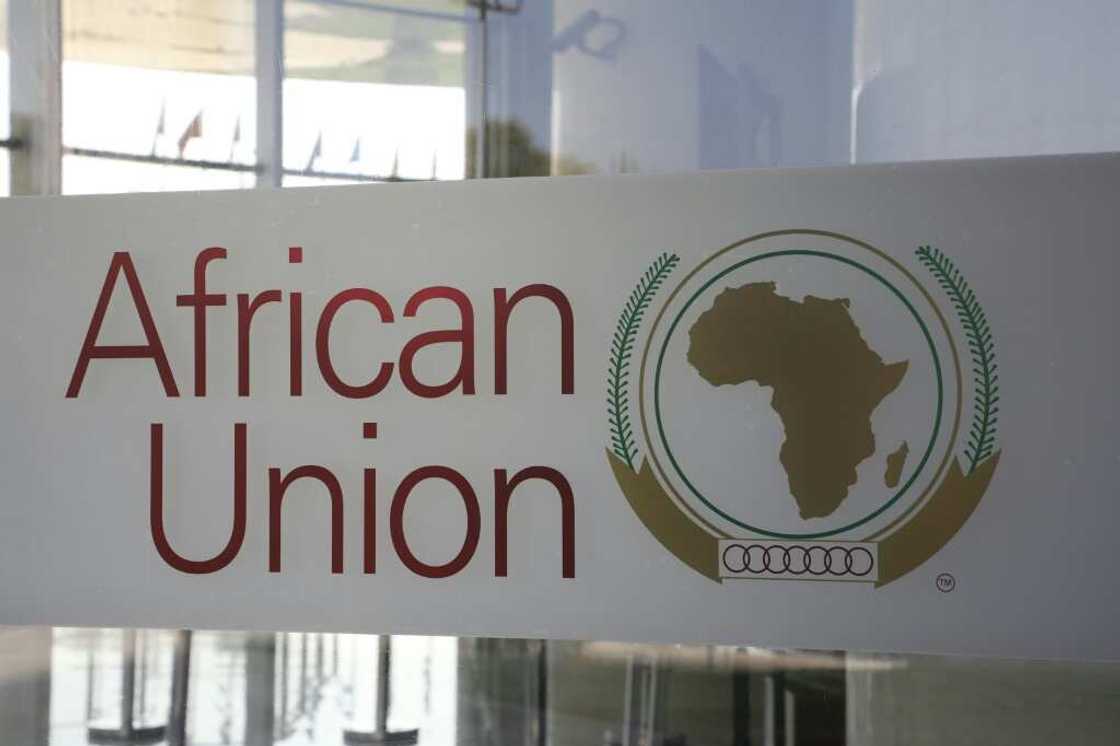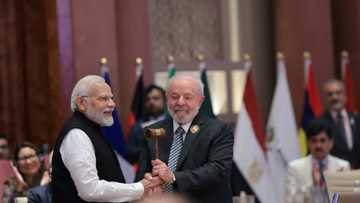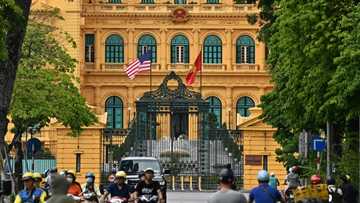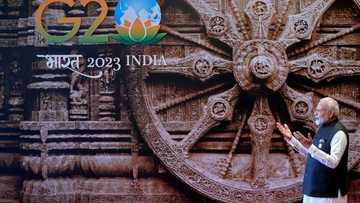Africa Union tests diplomatic muscle with G20 entry

Source: AFP
PAY ATTENTION: Сheck out news that is picked exactly for YOU ➡️ click on “Recommended for you” and enjoy!
The Africa Union's entry into the G20 group of the world's most powerful economies highlights the continent's growing influence and gives its leaders a stronger voice in global decision-making.
African leaders applauded the move for better representing the Global South and recognising Africa in multilateral debate on problems such as climate change where it has often been the most affected but least consulted.
With China and Russia asserting more influence and BRICS trade group expanding to include Egypt and Ethiopia, analysts and experts said the G20 decision also shows Africa's weight as a global player in its own right.
The 55-member Africa Union joining G20 brings along the fastest-growing continent with the youngest population and huge potential to contribute to developing green transitions.
"It is significant for Africa to be recognised and included. What it actually does with this membership remains to be seen," said Steven Gruzd, head of the African Governance and Diplomacy Programme at the South African Institute of International Affairs.
"It will certainly help put African issues on the international agenda, with AU in the heart of discussions."
PAY ATTENTION: Follow us on Instagram - get the most important news directly in your favourite app!
Headquartered in Ethiopia's capital Addis Ababa, the AU has 55 member states though several are currently suspended after military coups.
Pressure for G20 membership quickened this year with Senegal's President Macky Sall saying an AU seat would undo an "injustice" and EU central bank chief Christine Lagarde urging more weight for Africa in financial institutions.
India's Prime Minister Narendra Modi announced the call for the AU to join the G20 at a weekend summit in New Dehli.
"Africa’s permanent membership of the G20 means it has been recognised as a key player on the world economic landscape," Zambia's President Hakainde Hichilema said on X, formerly Twitter.
"African countries must now leverage this position to accelerate development of their economies and their young populations."
Nigeria's President Bola Ahmed Tinubu who wants to put his country, Africa's largest economy and most populous nation, back on the map as a regional heavyweight, welcomed the move towards greater inclusion.
Tinubu, who heads the regional West African bloc ECOWAS, said Nigeria also looked to play a larger role.
"Nigeria is poised, able and willing to be a major player in this family of the G20 and in shaping a new world, without whom, the family will remain incomplete," he said in a statement.
BRICS rising
Solomon Ayele Dersso, founding director of Amani African Media and Research Services think tank, said the G20 membership allowed Africa to shift identity from "being the object of decision making to an agent of decision making".
"It brings a much-needed injection of legitimacy to the group, considering that some of the decisions that it adopts have far-reaching consequences for people who didn't have really a say on those decisions," he said.
Analysts said while the AU already had a formula for reaching common positions among its 55 members, it would require some structures to build on that to work on G20 matters.
Hannah Ryder, senior associate at the Center for Strategic and International Studies' Africa Program, said the Africa Continental Free Trade Area (AfCFTA) showed how AU members worked on economic issues compared to some other free trade agreements.
"It's the largest free trade area by number of countries and benchmarked against other new FTAs... is showing greater progress in terms of new protocols, piloted traded goods," she said.
Climate change is certainly one issue where Africa will seek to have more of a voice on global decisions.
African leaders met in Nairobi this month for a climate summit where they urged changes to global financing and support for the continent's development of renewable energy.
Africa nations may also look to have more say in how global financial decisions impact the continent, said William Gumede, chairman of the Democracy Works Foundation, a Johannesburg-based think tank.
"Africa will also put on the table that monetary policy in Western countries must be done in a way that doesn't harm African countries," he said.
But the growth of Chinese and US rivalry, Russia's push to extend its influence and the expansion of BRICS as a competing economic group also underscored Africa's importance.
"The timing underlines the continent's renewed role as a diplomatic battleground," Gumede said.
"I think it then becomes critical strategically for the G7 and G20 to try to bring in more of the bigger developing country economies."
Source: AFP





